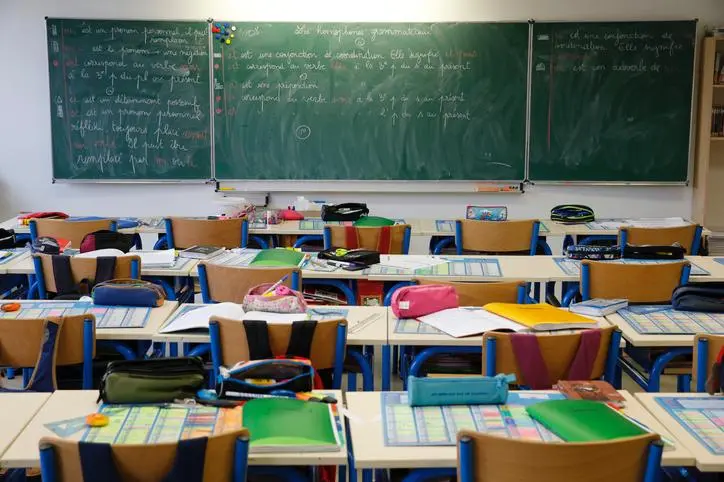PHOTO
DAMMAM — The educational departments in various regions and governorates across Saudi Arabia have completed the procedures for the selection of public and private secondary schools that would implement Chinese language enrichment program in their second grade during the first semester of the new academic year, which will begin on Sunday, Aug. 20. There will be targeted number of schools for teaching Chinese under each educational department, according to a report in local Arabic daily Al-Watan.
This is part of the implementation of the third phase of the application of the tracks system that includes teaching Chinese, new courses, graduation project, elective field, guidance for proficiency classes, hybrid education, and volunteering.
The Ministry of Education will encourage facilitators in the process of teaching the Mandarin Chinese language. Normally, facilitators concentrate on the learning process through encouraging collaboration and self-learning. Teachers are more focused on delivering content, whereas facilitators stimulate discussions, ask questions to get the group thinking, and encourage peer-to-peer communication.
The ministerial guide, supplied to the educational departments, emphasized that educational departments would allot at least one proficiency class per week in the entire semester, to implement the Chinese language program, and assign it to a facilitator, whose role is limited to support and guide students for self-learning. The program then will be re-applied on a new section of students for each semester, and materials for special enrichment will be provided for application together with evaluation tools.
The rest of the schools have the option to apply or invest in proficiency classes according to what it deems necessary in case of the desire to implement the notification of the Educational Supervision Department. The target number of male and female students in Al-Ahsa Education Department in the Estern Province is about 2950 male and female students, including 1415 male students in eight schools and 1534 female students in 10 schools.
The guide stressed that educational departments shall be active in their academic supervision, monitoring the level of male and female students’ achievement of volunteer hours, especially third-grade students, and working to complete volunteer hours before the end of the eighth semester. It also instructed the departments to confirm the provision of volunteer opportunities for male and female students, with the necessity of supervision and follow-up.
With regard to blended or hybrid education, directive was issued to schools urging male and female students to apply for hybrid education. Applications submitted in this regard will be examined by a ministerial working group.
The guide showed that the elective field is offered in the third year of the general track only for three semesters, with a total of 130 classes distributed as follows: 39 classes in the seventh semester, with three classes per week; 52 classes in the eighth semester, with four classes per week; and 39 classes in the the ninth semester, with three classes per week.
The guide pointed out that the target areas in the elective field are: digital design, administrative skills, sustainable development, Chinese language, cybersecurity, artificial intelligence, first aid, fashion design, class and decoration, tourism and hotel, robotics, creative language (Arabic), and the Qur’an and its sciences.
The guide indicated that the elective field is one subject that extends over three semesters, and in the last semester the student shall submit a graduation project, and his classes in the academic schedule are consecutive, and do not exceed two consecutive classes. The elective fields are chosen according to the availability of teachers in the disciplines, and more than one elective subjects can be taught.
© Copyright 2022 The Saudi Gazette. All Rights Reserved. Provided by SyndiGate Media Inc. (Syndigate.info).




















